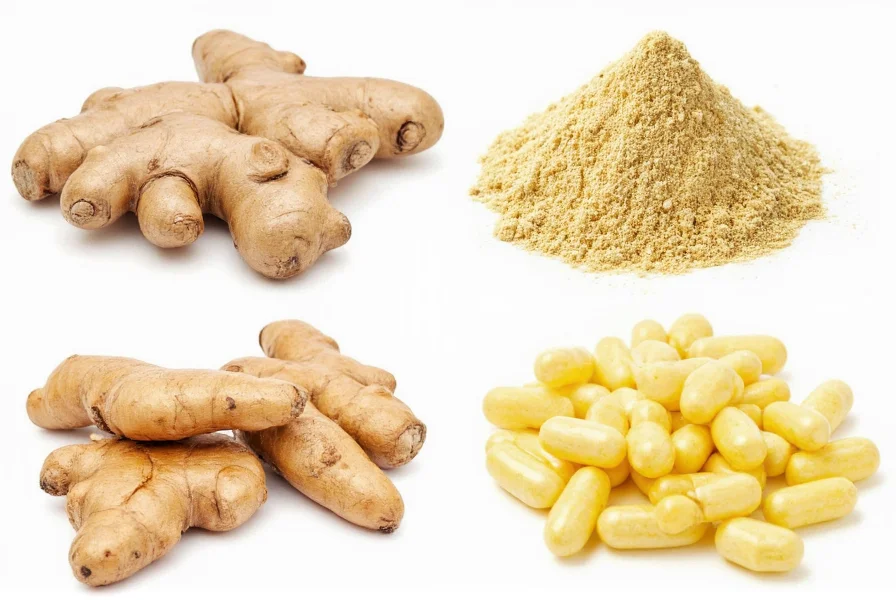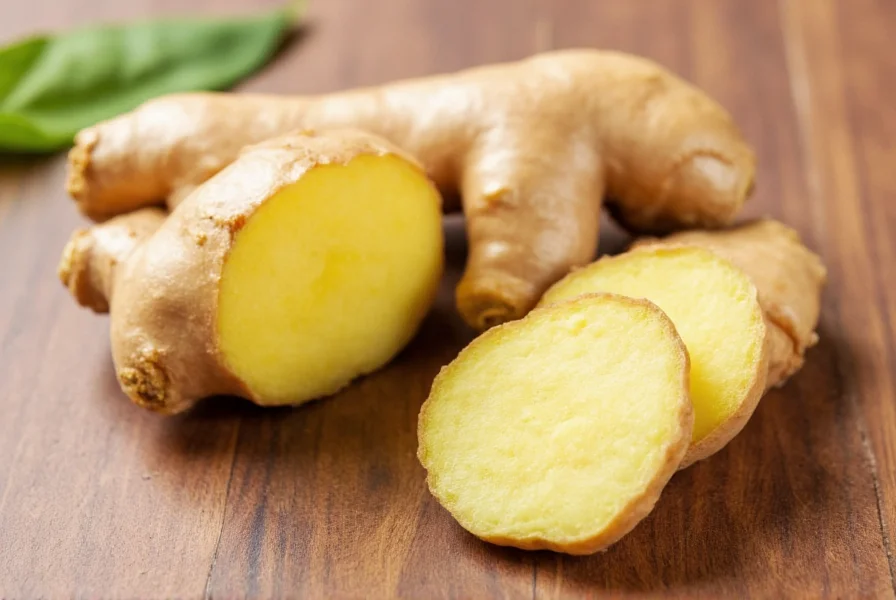Ginger has been used for centuries in traditional medicine systems for its potential health benefits. Modern science is now validating some of these uses, particularly regarding inflammation. The rhizome of the Zingiber officinale plant contains over 100 bioactive compounds, with gingerols being the most studied for their anti-inflammatory effects.
How Ginger Works Against Inflammation
Ginger's anti-inflammatory mechanism operates through multiple pathways. The primary compounds—6-gingerol, 8-gingerol, and 10-gingerol—inhibit key inflammatory enzymes including cyclooxygenase (COX) and lipoxygenase (LOX). These same pathways are targeted by non-steroidal anti-inflammatory drugs (NSAIDs), though ginger works through more diverse mechanisms without the gastrointestinal side effects commonly associated with pharmaceutical options.
Research published in the Journal of Medicinal Food demonstrated that ginger extract significantly reduced inflammatory markers in human cell cultures. Another study in Arthritis found that ginger supplementation showed modest but statistically significant improvements in knee osteoarthritis symptoms compared to placebo.
Evidence from Clinical Research
A comprehensive review of 120 studies on ginger's pharmacological properties confirmed its anti-inflammatory potential across various models. However, human clinical trials show more modest effects than laboratory studies suggest. The discrepancy highlights an important distinction: while ginger shows promise as a complementary approach, it shouldn't replace conventional treatments for serious inflammatory conditions.
| Study Type | Key Findings | Limitations |
|---|---|---|
| In vitro (lab) | Strong inhibition of inflammatory pathways | Doesn't reflect human body complexity |
| Animal studies | Reduced inflammation markers in models | Species differences affect applicability |
| Human clinical trials | Modest symptom improvement in arthritis | Small sample sizes, varying dosages |
Practical Applications for Inflammation Management
For those interested in incorporating ginger for potential anti-inflammatory benefits, several approaches exist. Fresh ginger root contains the full spectrum of compounds, while processed forms vary in potency. Research on ginger for arthritis pain relief suggests consuming 1-2 grams of fresh ginger daily may provide benefits, though individual responses vary significantly.
When comparing ginger vs turmeric for inflammation, both show promise but work through different mechanisms. Some studies suggest combining these spices may have synergistic effects, though more research is needed to confirm this interaction in humans.

Safety and Considerations
Ginger is generally recognized as safe by the FDA, but certain precautions apply. Those taking blood thinners should consult their physician before consuming therapeutic doses, as ginger may enhance anticoagulant effects. The scientific evidence on ginger anti-inflammatory properties doesn't support extremely high doses, with most studies using 1-3 grams daily.
Pregnant women should limit ginger intake to culinary amounts, as high doses may affect hormone levels. People with gallstones should also exercise caution, as ginger stimulates bile production. Always discuss incorporating ginger for inflammation with your healthcare provider, especially if managing chronic inflammatory conditions.
Realistic Expectations for Natural Approaches
While exploring natural anti-inflammatory foods with ginger, it's crucial to maintain realistic expectations. Ginger shouldn't replace prescribed treatments for serious inflammatory conditions like rheumatoid arthritis or inflammatory bowel disease. Instead, consider it as part of a comprehensive approach that includes diet, exercise, stress management, and conventional medical care when necessary.
The how much ginger for anti-inflammatory effects question doesn't have a universal answer, as individual biochemistry varies. Most clinical studies showing benefits used standardized extracts providing 50-200mg of gingerols daily, equivalent to about 1-2 grams of fresh ginger. Consistency matters more than occasional high doses—regular consumption appears more effective than sporadic large amounts.
Conclusion
Ginger shows genuine promise as a natural anti-inflammatory agent based on current scientific understanding. The does ginger reduce inflammation question can be answered with cautious optimism—research supports its potential benefits, though not as a standalone treatment for significant inflammatory conditions. As with any natural remedy, approach ginger as part of a holistic health strategy rather than a miracle cure. Future research will likely provide clearer guidance on optimal formulations, dosages, and specific conditions where ginger may offer the most benefit.
Frequently Asked Questions
How long does it take for ginger to reduce inflammation?
Research suggests it may take 4-12 weeks of consistent daily consumption to notice anti-inflammatory effects from ginger. A study in the Journal of Pain found significant reductions in muscle pain after 11 days of 2 grams daily ginger supplementation, while arthritis studies typically show benefits emerging after 4-6 weeks of regular use.
What's the most effective form of ginger for inflammation?
Fresh ginger root appears most effective due to its full spectrum of compounds, though standardized extracts providing 5% gingerols offer consistent potency. Dried ginger loses some volatile compounds during processing, while cooked ginger converts gingerols to more potent shogaols. For therapeutic use, look for supplements standardized to gingerol content rather than relying solely on weight measurements.
Can ginger replace NSAIDs for inflammation?
No, ginger shouldn't replace prescribed NSAIDs for significant inflammatory conditions. While ginger shows anti-inflammatory properties, its effects are generally milder than pharmaceutical options. Some research suggests it may complement conventional treatments or help reduce NSAID dosage under medical supervision, but never discontinue prescribed medications without consulting your healthcare provider.
Does cooking ginger affect its anti-inflammatory properties?
Cooking transforms ginger's compounds rather than destroying them. Heating converts gingerols to shogaols, which are actually more potent anti-inflammatory agents. However, prolonged high-heat cooking may degrade some beneficial compounds. For maximum benefit, add ginger toward the end of cooking or consume some raw in addition to cooked preparations.
Are there specific inflammatory conditions where ginger works best?
Research shows the most promising results for ginger in managing osteoarthritis pain and exercise-induced muscle soreness. Some studies indicate benefits for menstrual pain and mild gastrointestinal inflammation. However, evidence for more serious conditions like rheumatoid arthritis or inflammatory bowel disease is limited, and ginger should be considered complementary rather than primary treatment for these conditions.











 浙公网安备
33010002000092号
浙公网安备
33010002000092号 浙B2-20120091-4
浙B2-20120091-4